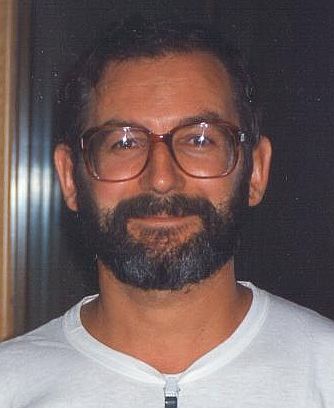Daniel Comboni
Comboni Missionaries
Institutional area
Other links
Newsletter
In Pace Christi
Pellegrini Franco
Fr. Franco Pellegrini was born in Palu di Giovo, in the Province of Trent, on 19 July, 1945, the fourth of the five children of Gino and Anna. The Comboni missionaries present in Trent, who were already visiting that area, knew little Franco and invited him to enter the seminary of the African Missions. In 1956, even though he knew little of what becoming a missionary entailed, Franco joined the Comboni seminary of Muralta to follow the same path as many boys did, full of generosity and ideals. While in the second year of middle school he went to Padua until it was time for him to go to the Lyceum at Carraia (Lucca). In 1965, he joined the novitiate at Gozzano where he took first vows on 9 September, 1967. He studied theology at the scholasticate of Venegono and later in Rome. He was ordained priest on 17 April, 1971, at Lavis to where the family had moved some years earlier. In 1972 he was working in Brasile Nordeste, in the diocese of Balsas in the state of Maranhao, the cradle of the Comboni missionaries ever since their arrival in June, 1952. He spent some months helping with the pastoral work and learning the language and traditions of the people.
At the end of 1973, Fr. Franco was sent to Mirador where he formed a community of two with Fr. Andrea Filippi. He was in charge of a vast area. He was young, full of ideas and energy and immediately also began to assist the community of Sucupira do Norte, one of the many small towns scattered around the sertão south of Maranhao. Fr. Franco was warmly welcomed and supported by the local Bishop, Mgr. Rino Carlesi. He dedicated himself to the work of animating and founding small Christian communities, called ecclesial basic communities in those days. Having spent some years at Mirador, Fr. Franco was transferred to Sucupira do Norte.
In 1977 he was recalled to Italy. He worked at Padua for three years, mostly with the youth until he was again appointed to the diocese that was his first love, Balsas. In 1980 he moved to Riachao, a town about 70km from the diocesan seat.
After serving as a missionary for four years at Riachao, the General Council appointed him formator at the scholasticate of São Paulo and in charge of the administration of the parish of Santa Maddalena where the house of formation for theology students was located.
In 1989, he returned to Maranhão, not to Balsas but to São Luis, in Vila Embratel, a vast and chaotic region in the periphery of the capital: a place that presented an infinity of social and ecclesial challenges. He formed a community with Fr. Luigi Zadra, his friend since his childhood who had also worked for many years in the diocese of Balsas. Their partnership proved very fruitful. Working together, they restructured a number of ecclesial communities, keeping in touch with their problems and concerns, organising the first ‘Romaria do trabalhador’ which is still in existence and initiating the ‘little school of the people’ for children and youngsters living in situations of social risk.
Fr. Franco understood that Brazil had become his native country where he would remain for the rest of his days. He requested and was granted Brazilian citizenship. After about ten year at São Luis, Fr. Franco was appointed to Itupiranga, one of the most violent places in Brazil. Not long afterwards, however, he was asked to help the Comboni community of Potosi. Fr. Franco did not need to be asked twice and took on the coordination of the parish founded a short time previously in the outskirts of Balsas, now a city with over 90,000 inhabitants and numerous problems. There he once again met the elderly and lovable Bishop Rino Carlesi and later his successor, his friend and comrade of ‘ancient battles’, Mgr. Franco Masserdotti. Together they convoked a diocesan synod which produced a consistent pastoral plan, founded various schools for the training of the laity and supported new local priestly vocations. Fr. Franco stayed in Balsas up to 2004, when he was asked to go to Salvador-Sussuarana. Now 66 years old, he had the lucidity and freshness of a much younger man and provided a living example of how a missionary may mature and grow old while remaining young at heart and up to date with a critical eye and an understanding of human limitations.
Fr. Franco died in a road accident on 1 December, 2011, just a few hours after participating in a meeting with the diocesan clergy. His funeral took place in the parish church of St. Daniel Comboni. Since his family members had agreed to his desire to stay in Brazil, Fr. Franco was buried in the cemetery of Sussuarana.
(Fr. Claudio Bombieri)

